Module 9 – Laughter

LLM Online
©Arlene R. Taylor, PhD
Module 9 – Laughter
Laughter triggers the release of a cocktail of endogenous (internally produced) chemicals and hormones that are extremely beneficial and crucial to good health. These substances can boost immune system function, improve your outlook on life, diminish symptoms of depression, reduce stress, and can help prevent diseases and disorders caused by chronic stress.
—Madan Kataria, MD
To Begin
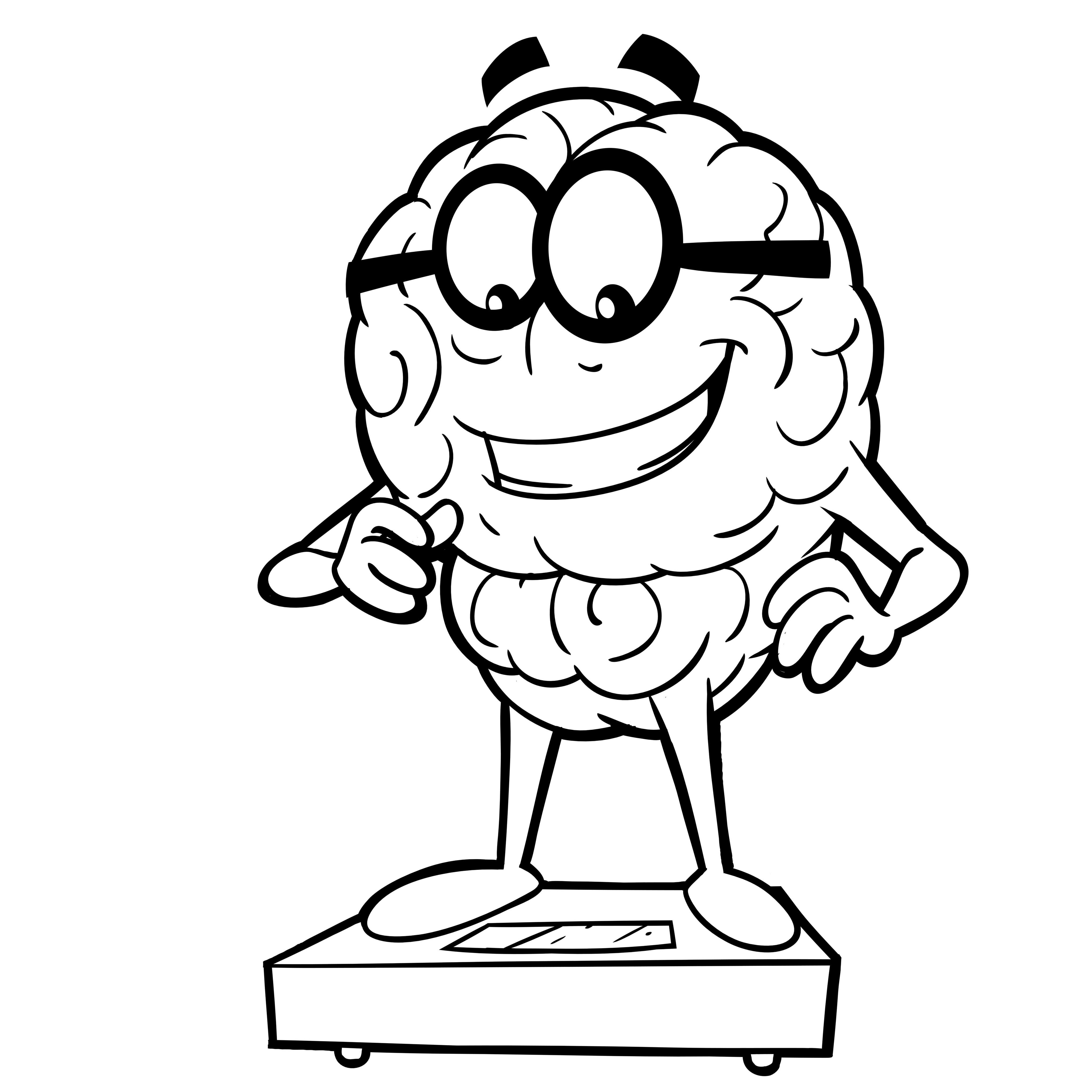 Weigh yourself in your underwear or clothes that you will wear each week on the same scales—no belt, shoes, sweater, or jacket.
Weigh yourself in your underwear or clothes that you will wear each week on the same scales—no belt, shoes, sweater, or jacket.- Measure your waist around the level of your belly button.
- Calculate your Body Mass Index using the BMI chart. Use your height in centimeters.
- Record data on the Weekly Comparison form.
- Write in your own goal on the Daily Goals form.
- Post it where you can see it easily. Record your data each day.
Relaxing is key to learning. Learning is key to leadership. Laughter unlocks both. When people share laughter they trust each other. And laughter begets more trust. Laughter need not be cut out of anything since it improves everything.
—James Thurber
Overview
- Gelotology (from the Greek gelos, or laughter) is the study of laugher’s impact on the brain and body from a psychological and physiological perspective.
 This field of study is said to have been pioneered by William F. Fry, MD, of Stanford University. Dr. Fry claims it took ten minutes on a rowing machine for his heart rate to reach the level it would after just one minute of hearty laughter. He said, “You don’t need equipment, you don’t need a nice day, you don’t need humor.”
This field of study is said to have been pioneered by William F. Fry, MD, of Stanford University. Dr. Fry claims it took ten minutes on a rowing machine for his heart rate to reach the level it would after just one minute of hearty laughter. He said, “You don’t need equipment, you don’t need a nice day, you don’t need humor.” - While it is important to be serious about life, avoid taking every little thing too seriously. Life is relatively short: years against eons. Make your life count and have fun in the process. Schedule regular opportunities for play, relaxation, fun, and variety. Mirthful laughter is being touted by some as a medicine.
It requires no visits to healthcare professionals, no prescriptions, no special outfit, and certainly no specific environment. Think of laughter as a form of beneficial play—for both your brain and body.Always laugh when you can; it is cheap medicine.
—Lord Byron
- Dr. Madan Kataria, a family physician in Mumbai, India, also researched the benefits of laughter. In 1995, he started a Laughter Club,
 which has grown to 6000 clubs in more than 60 countries. He wrote Laugh for No Reason in 2002. Dr. Kataria points out that laughter can . . .
which has grown to 6000 clubs in more than 60 countries. He wrote Laugh for No Reason in 2002. Dr. Kataria points out that laughter can . . .
- Change your mood instantly by releasing endorphins, the body’s natural morphine.
- Reduce stress and strengthen the immune system.
- Increase the net supply of oxygen to the body and brain, making you feel more energetic.
- Help develop a caring network of friendship since laughter bonds people together.
- Provide a positive mental attitude when life gives you challenges.
- Change your mood instantly by releasing endorphins, the body’s natural morphine.
- Typically, a child grows up absorbing “rules” about laughter. Sometimes these directives are spoken; other times, unspoken. But following the rules is expected.
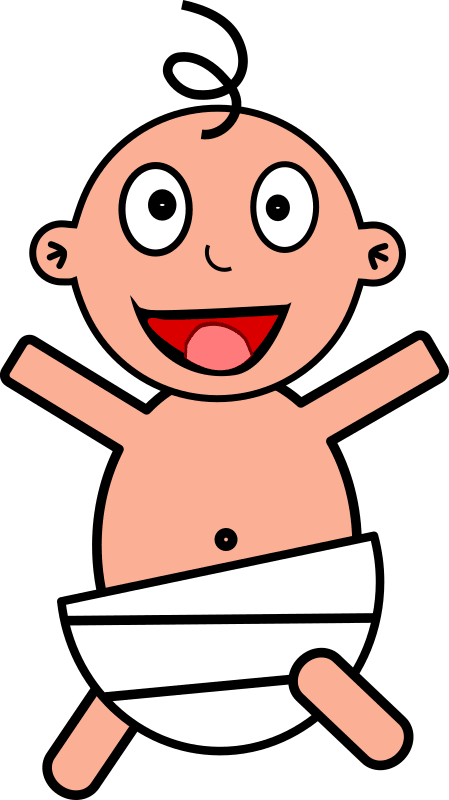 Some of these rules are appropriate and necessary for effective communication. Others reflect antiquated beliefs or expectations on the part of the adults.
Some of these rules are appropriate and necessary for effective communication. Others reflect antiquated beliefs or expectations on the part of the adults.
Some of the “rules” can and do change from generation to generation. Being told “Don’t laugh” in childhood pretty well guaranteed that you would laugh since those words create a picture of laughter in your working memory. In adulthood, each person needs to craft his/her own “rules” related to laughter.Humor, then, is a set of survival skills that relieves tension, keeping us fluid and flexible instead of allowing us to become rigid and breakable, in the face of relentless change.
—C. W. Metcalf
That humor, mirth, and laughter produce beneficial effects on the immune system, and therefore on health is no longer in doubt. The emotion of happiness has, for many centuries, been equated with health. Recent research confirms this belief.
—Sandra L. Nehlsen-Cannarella, PhD

Reminder: Drink a glass of water. View the Educational Video. Stand and walk in place for at least a portion of the video to increase blood flow to your brain.
Science in a Nutshell
- After nearly three decades of evaluating the physiologic effects of mirthful laughter, Dr. Fry pointed out how humor can antagonize stress in mental, emotional, and physical aspects. Emotional tension that contributes to stress is lowered through the cathartic effects of humor. Humor banishes the rightness and severity that are necessary for anger. In all but the more severe degrees of depression, humor can help relieve its devitalizing grip. Laughter appears to occur much more often when people are engaged in social interactions with others than when they are alone.
 Robert Provine at the University of Maryland found that people are 30 times more likely to laugh when they are with others. This phenomenon has also been observed in children. According to Sebastian Gendry, both adults and children laugh primarily during social interactions. Consequently, the frequency of laughter at any age depends on how much time an individual spends interacting with others. Thus, laughter is essentially a social behavior, a form of nonverbal communication.
Robert Provine at the University of Maryland found that people are 30 times more likely to laugh when they are with others. This phenomenon has also been observed in children. According to Sebastian Gendry, both adults and children laugh primarily during social interactions. Consequently, the frequency of laughter at any age depends on how much time an individual spends interacting with others. Thus, laughter is essentially a social behavior, a form of nonverbal communication. - Some people rarely laugh, which may relate—at least in part—to socialization attempts by family and friends who believe that one must be sober, serious, and vigilant. It also may involve a failure to hone one’s own sense of humor and/or look for humor in everyday life and use it to trigger laughter. Obtaining clear data on the amount of laughter among children and adults is difficult because definitions of “a laugh” differ. For example, is it one exhalation of laughter or one episode of sustained laughter?
- Gelotology researcher Lee Berk, PhD, has reported conclusions from many studies.
In one, a group of test subjects sat quietly in a room;Body by Nautilus; brain by Mattel.
—Bumper Sticker the other group watched a short comedy video. Memory testing immediately afterward found that those who had watched the funny video performed better on all of its measures: memory recall, learning ability, and visual recognition. Saliva samples taken before and after showed a decrease in levels of the flight-fight hormone (cortisol) in the humor group but stayed constant in the control group.
the other group watched a short comedy video. Memory testing immediately afterward found that those who had watched the funny video performed better on all of its measures: memory recall, learning ability, and visual recognition. Saliva samples taken before and after showed a decrease in levels of the flight-fight hormone (cortisol) in the humor group but stayed constant in the control group.
- Physiologically, laughter is said to be a respiratory act. Laughter increases pulmonary ventilation, meaning over and above normal breathing rates—good for your brain! Because of its impact on breathing, Dr. Kataria referred to it as laughter “yoga.” It also increases the heart rate in proportion to the duration and intensity of the laughter. When the episode of laughter ends, heart rate and blood pressure—both systolic and diastolic—drop below the pre-laughter baseline rate.
 Laughter also triggers musculoskeletal activity, with relaxation of muscles in the neck shoulder, ribs, diaphragm, and abdomen. Digestive functions are stimulated through episodes of laughter. In very hearty laughter, even more muscles become involved, which can result in total body relaxation. The benefits of laughter have been compared to those of exercise, both promoting an enhanced sense of well-being, stress reduction, and relaxation.
Laughter also triggers musculoskeletal activity, with relaxation of muscles in the neck shoulder, ribs, diaphragm, and abdomen. Digestive functions are stimulated through episodes of laughter. In very hearty laughter, even more muscles become involved, which can result in total body relaxation. The benefits of laughter have been compared to those of exercise, both promoting an enhanced sense of well-being, stress reduction, and relaxation.
A number of brain structures, including the prefrontal cortex, which is involved in language processing and memory, are involved in humor appreciation. The brain's mesolimbic reward center, which is responsible for the rewarding feelings that follow such events as monetary gain or cocaine use, is also activated by humor.
—Allan L. Reiss MD
Matter of Fact
1st –
Laughter is a sound that arises from Broca’s area. The home of audible speech, Broca’s area is located in the left frontal lobe—the prioritizing division of the brain’s left hemisphere. 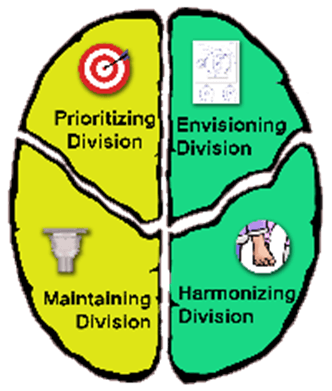 Depending on how you laugh, you can express joy, happiness, affirmation, mirth, anger, fear, sadness, scorn, derision, shame, and more. Laughter, an interesting phenomenon, appears to be modeled by the mother figure during the 1st year of a child’s life and stabilizes in the child’s 2nd year. If the mother is happy and laughs a lot, the likelihood is that so will the infant. Babies as young as 17 weeks have been observed laughing, while other babies might not laugh until 4-5 months of age or more. Ziv Avner has pointed out that around the age of one a child begins to laugh at the unusual behavior of adults, e.g.,
Depending on how you laugh, you can express joy, happiness, affirmation, mirth, anger, fear, sadness, scorn, derision, shame, and more. Laughter, an interesting phenomenon, appears to be modeled by the mother figure during the 1st year of a child’s life and stabilizes in the child’s 2nd year. If the mother is happy and laughs a lot, the likelihood is that so will the infant. Babies as young as 17 weeks have been observed laughing, while other babies might not laugh until 4-5 months of age or more. Ziv Avner has pointed out that around the age of one a child begins to laugh at the unusual behavior of adults, e.g.,  making funny faces or walking on all fours. By age two, children laugh at incongruities and try creating their own juxtapositions. Children learn very early when laughter is acceptable and when it is not; what it is appropriate to laugh at and under what circumstances. Not that they always conform!
making funny faces or walking on all fours. By age two, children laugh at incongruities and try creating their own juxtapositions. Children learn very early when laughter is acceptable and when it is not; what it is appropriate to laugh at and under what circumstances. Not that they always conform!
The left hemisphere is quite literal in its interpretations of humor (e.g., a joke) and rarely gets it. It is especially drawn to wordplay like, “The bigger the summer vacation, the harder the fall.” It creates the sense of amusement and so is quite happy to laugh at anything when prompted to do so. The right hemisphere, on the other hand, is more alert to subtleties and nuances. It quickly grasps the meaning by pulling together threads of a joke—including context, assumptions,  knowledge of personal bias, and/or prejudice. It gets the joke by registering the dislocation in logic that is a hallmark of most formal humor. What strikes you as humorous is usually learned and triggered by a mismatch between what your brain expected and what actually occurred—like the punch line on a joke.
knowledge of personal bias, and/or prejudice. It gets the joke by registering the dislocation in logic that is a hallmark of most formal humor. What strikes you as humorous is usually learned and triggered by a mismatch between what your brain expected and what actually occurred—like the punch line on a joke.
What if you don’t feel humorous? Pretend to be happy. You have to start somewhere even if it means going through the motions at first. If you decide to be healthy, hopeful, and fun-loving, that is what you will be.
—Harry A. Olson, PhD
2nd –
Laughter can be reflexive, meaning that it is almost impossible to control laughter when being tickled playfully—something you cannot accomplish alone. (You are in control when tickling yourself, and there’s no surprise!)  Laughter can also be instinctual, as in hearing the unexpected punchline on a joke. Instinctual laughter appears to be linked with your brain’s overseer, the hypothalamus. You may or may not be able to control instinctual laughter, especially if you are being told to “Stop laughing.” Good luck! Mirror neurons behind your forehead fire when watching another person’s actions, as if it’s happening to you. When watching or hearing laughter, these neurons may be partly responsible for a person following through on those mirror neurons.
Laughter can also be instinctual, as in hearing the unexpected punchline on a joke. Instinctual laughter appears to be linked with your brain’s overseer, the hypothalamus. You may or may not be able to control instinctual laughter, especially if you are being told to “Stop laughing.” Good luck! Mirror neurons behind your forehead fire when watching another person’s actions, as if it’s happening to you. When watching or hearing laughter, these neurons may be partly responsible for a person following through on those mirror neurons.
Much like yawning, laughter is an intensely infectious activity that triggers the Brain Reward System. 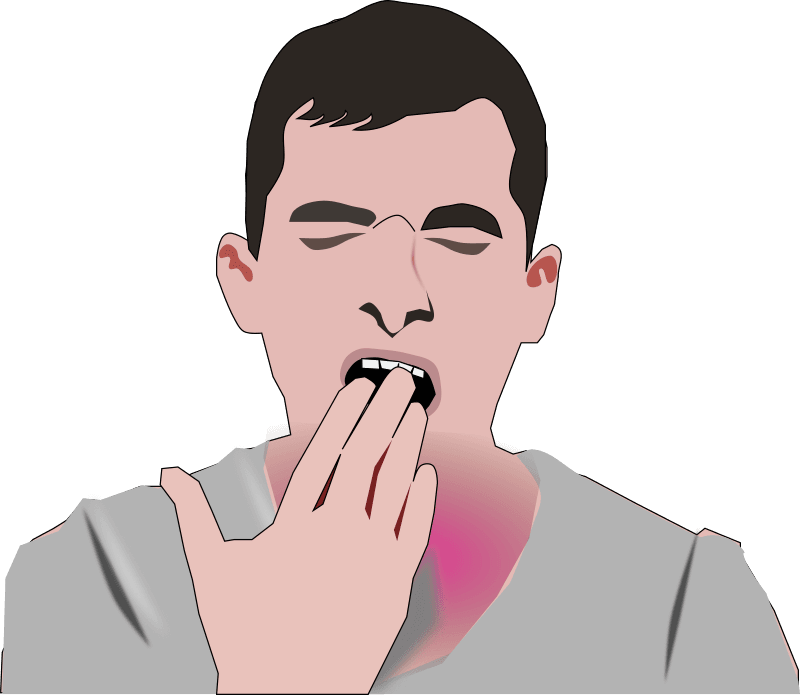 Dr. Madan Kataria of India found that when groups of individuals get together and choose to laugh, before long it becomes genuine laughter. Brief humor-related laughter comes from the brain. Choosing to laugh disengages you from regular life at the moment. Laughing from your diaphragm helps rid the lungs of residual air and makes room for deep inhalations of fresh air. When you are genuinely laughing mirthfully, the brain gets it and releases substances to help you feel better.
Dr. Madan Kataria of India found that when groups of individuals get together and choose to laugh, before long it becomes genuine laughter. Brief humor-related laughter comes from the brain. Choosing to laugh disengages you from regular life at the moment. Laughing from your diaphragm helps rid the lungs of residual air and makes room for deep inhalations of fresh air. When you are genuinely laughing mirthfully, the brain gets it and releases substances to help you feel better. 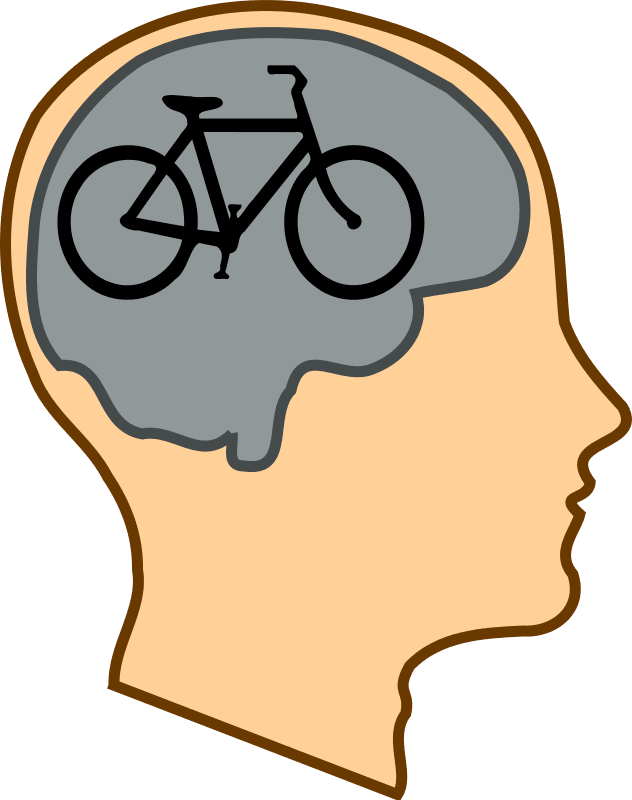 A vigorous laugh is said to burn as many calories per hour as brisk walking or cycling and shake up major body organs, providing a form of “internal jogging.”
A vigorous laugh is said to burn as many calories per hour as brisk walking or cycling and shake up major body organs, providing a form of “internal jogging.”
We usually encounter positive emotions, such as laughter or cheering, in group situations, whether watching a comedy program with family or a football game with friends. This response in the brain, automatically priming us to smile or laugh, provides a way of mirroring the behavior of others, something which helps us interact socially. It could play an important role in building strong bonds between individuals in a group.
—Sophie Scott, PhD
3rd –
| Humor—as a treatment—works equally well as “preventative medicine.” —Joel Goodman, EdD |
Humor is a mental faculty that is built into the right frontal lobe—the envisioning division of the brain’s right hemisphere. Like any other faculty, however, it must be developed and honed.  You may have a predisposition toward music, but unless you develop and hone that faculty it can sit in the brain quite dormant. Humor activates when something you did not expect to see, hear, or think occurs. (If you have honed your sense of humor, that is.) Humor may be triggered by seeing a person skid unexpectedly on a banana peel or from hearing a child make unusual sounds or from watching the antics of a clown. Humor recognition may or may not be accompanied by laughter.
You may have a predisposition toward music, but unless you develop and hone that faculty it can sit in the brain quite dormant. Humor activates when something you did not expect to see, hear, or think occurs. (If you have honed your sense of humor, that is.) Humor may be triggered by seeing a person skid unexpectedly on a banana peel or from hearing a child make unusual sounds or from watching the antics of a clown. Humor recognition may or may not be accompanied by laughter.
Typically, humor is learned in your family-of-origin and, like laughter, is very subjective. It may be appreciated with or without laughter and can be used to trigger laughter. Most individuals can name people who have a “great sense of humor,” as well as some who fear humor.
| The Constitution only guarantees the American people the right to pursue happiness. You must catch it yourself. —Benjamin Franklin |
Then there are those who suffer from humor-a-phobia—no sense of humor whatsoever, even when it comes to making up new words! These individuals seem either to not understand a sense of humor or have not developed theirs. Sometimes they will comment, “Oh, that was funny.” If you find something funny and others do not, avoid taking it personally. Each person’s perception of humor and expectations about laughter differ.
Humor is an attitude toward life, an ability to be objective unattached ad see the absurdity of one’s plight. Humor is willingness to accept life and oneself.
—Harvey Mindess
4th –
Multiple studies are showing the many benefits both to the brain and the body—including the immune system—of mirthful laughter. It can...
 Trigger the Brain Reward System to release endorphins, serotonin, and dopamine.
Trigger the Brain Reward System to release endorphins, serotonin, and dopamine.- Lengthen your life regardless of your age, weight, or even smoking habits.
- Relieve psychological stress and keep the brain alert, improving creativity and problem-solving.
- Increase IgA antibodies in the saliva to help combat upper respiratory infections.
- Increase rate and depth of breathing that helps oxygenate cells and clear mucus from the lungs, and may improve chronic respiratory conditions.
| A good laugh is sunshine in the house. —William Makepeace Thackeray |
- Increase circulation of the blood, temporarily lower blood pressure, and decrease a risk of hypertension, heart attack, and stroke.
- Mimic the effectiveness of repetitive exercise, strengthening the response to repetitive or sustained laughter.
- Relieve muscle tension, relaxing muscles throughout the body and conditioning the abdominal muscles.
- Enhance digestion, releasing enzymes that protect against stomach ulcers and act as natural laxatives to help prevent constipation.
- Enhance learning, promote retention of information, and increase the ability to recall information.
- Increase the likelihood of transferring information from short-term to long-term memory during sleep.
- Increase circulation of the blood, temporarily lower blood pressure, and decrease a risk of hypertension, heart attack, and stroke.
There are amazing physiological changes that occur with humor and mirthful laughter and consequently, there may be more benefits than we ever realized.
—Lee Berk, PhD
5th –
Benefits of mirthful laughter, continued. It can...
- Trigger the release of endorphins, the brain and body’s natural morphine, to help reduce aches and pain.

- Increase activity of natural killer cells that, as part of the immune system, help fight diseases caused by viruses (from colds to cancer) and liberate interleukin-2, immune messengers.
- Give you a different perspective and help you see life’s bigger picture.
| You cannot stay mad at somebody who makes you laugh. —Jay Leno |
- Stimulate and reconnect the two cerebral hemispheres that have been disconnected by stressors.
- Boost production of human growth hormone, which is anti-aging.
- Help the body with type 2 diabetes to process sugar better.
- Trigger the release of interleukin-2 and other immune substances that help the immune system fight infections
- He
 al on an emotional level and help create a sense of closeness. (It is difficult to hold on to anger or hurt while engaged in mirthful laughter.)
al on an emotional level and help create a sense of closeness. (It is difficult to hold on to anger or hurt while engaged in mirthful laughter.) - Promote more comfortable sleep.
- Decrease cortisol and epinephrine, the result of which can help reduce the negative effects of stress on brain and body.
- Stimulate the body to repair damage from the effects of mismanaged emotions
- Stimulate and reconnect the two cerebral hemispheres that have been disconnected by stressors.
Even in the most difficult of times, a laugh—or even simply a smile—can go a long way toward making you feel better. And laughter really is contagious—just hearing laughter primes your brain and readies you to smile and join in the fun.
—Melinda Smith, MA & Jeanne Segal, PhD

Reminder: Drink a glass of water. Listen to Chapter 11 of “Just the Facts.” If possible, walk around the room while you listen. At least walk in place.
6th –
| Humor is by far the most significant activity of the human brain. —Edward de Bono |
Perception differences of what is “funny” typically exist between males and females. Female humor tends toward word play in the left hemisphere and stories  about something that strikes a woman’s funny bone. Females connect through language, but not necessarily through jokes. Male humor is more right brained; they use jokes to connect with males or use slapstick humor requiring no language. They typically give most jokes a higher rating. Males try harder to be funny and are rewarded for this growing up. They may be five times funnier according to some estimates. They like to tease others but do not necessarily like to be teased themselves and may even respond with aggression. Males are more likely to tease females they like—but do not waste the time and energy on those they dislike.
about something that strikes a woman’s funny bone. Females connect through language, but not necessarily through jokes. Male humor is more right brained; they use jokes to connect with males or use slapstick humor requiring no language. They typically give most jokes a higher rating. Males try harder to be funny and are rewarded for this growing up. They may be five times funnier according to some estimates. They like to tease others but do not necessarily like to be teased themselves and may even respond with aggression. Males are more likely to tease females they like—but do not waste the time and energy on those they dislike.
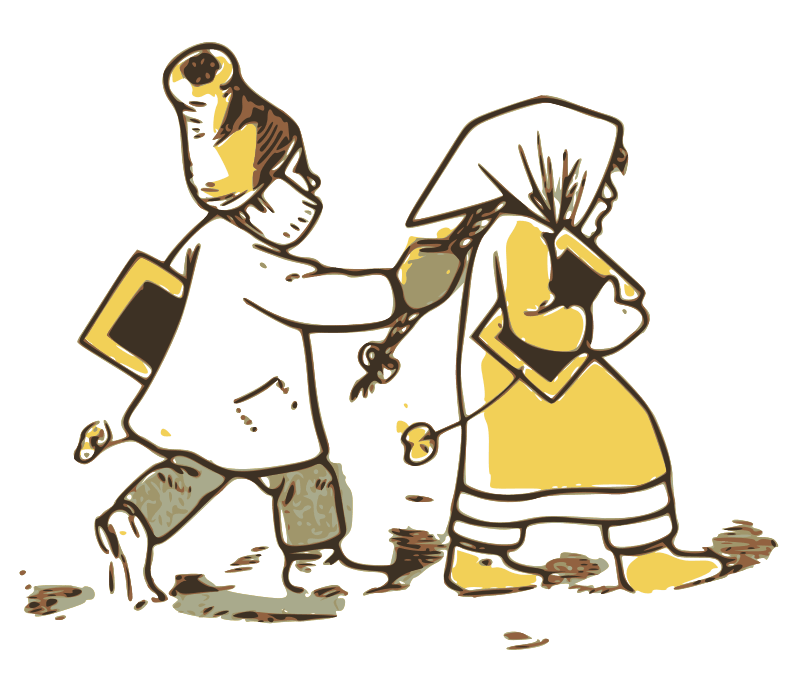 Females are less amused by poor jokes and less likely even to “get” them. However, if they find a joke very funny, they are likely to rate it even higher than male counterparts do. They usually accept teasing more playfully while not always understanding that males tease when they like a person. Learning each other’s humor is possible.
Females are less amused by poor jokes and less likely even to “get” them. However, if they find a joke very funny, they are likely to rate it even higher than male counterparts do. They usually accept teasing more playfully while not always understanding that males tease when they like a person. Learning each other’s humor is possible.
| Just anticipating a humor or laughter event initiates positive changes in neuroendocrine responses prior to onset of the event itself. —Lee Berk, PhD |
Businesswomen who can interact easily with male humor are a step ahead of women who don’t. Some universities now offer courses in understanding male-female humor. Studies show that humor and laughter promote healthier relationships: couples who laugh together tend to stay together! After all, who can hold onto anger or hurt while doubled over in mirthful laughter?
The arrival of a good clown exercises more beneficial influence upon the health of a town than twenty asses laden with drugs.
—Thomas Sydenham, 17th century physician
7th –
| The difference between genius and stupidity is that genius has its limits. —Albert Einstein |
Hone your sense of humor: it is a skill! Expand what your brain finds funny. Need help? Join a Laugh Club. Hang out with people who have a great sense of humor. Read humorous books and choose to laugh. Some have suggested that an adult’s health could benefit by a minimum of 30 mirthful laughs a day. Don’t feel like laughing right now? Choose to laugh anyway—and keep at it. A cheerful mind works healing.
Humor and laughter can enhance work success. Employees who laugh together are more likely to "stay together." They also tend to be more creative, more productive, and better at collaboration. Outstanding leaders use humor often to reduce stress, enhance brain function, and positively impact their communication.  Correctly used humor can be an effective intervention to improve retention in students from kindergarten through college. Studies find retention to be strongest in lectures with content-related humor. (Plus, students generally reported higher levels of enjoyment in the experience.) According to Ronald A. Berk, PhD, laughter has the potential to improve immune function and change brain wave activity toward the "gamma frequency" understood to improve memory and recall. During students' most anxious times—such as prior to or during an exam—humorous directions or test items may relieve tension and help students perform better.
Correctly used humor can be an effective intervention to improve retention in students from kindergarten through college. Studies find retention to be strongest in lectures with content-related humor. (Plus, students generally reported higher levels of enjoyment in the experience.) According to Ronald A. Berk, PhD, laughter has the potential to improve immune function and change brain wave activity toward the "gamma frequency" understood to improve memory and recall. During students' most anxious times—such as prior to or during an exam—humorous directions or test items may relieve tension and help students perform better.
When used effectively, classroom comedy can improve student performance by reducing anxiety, boosting participation, and increasing students’ motivation to focus on the material.
—Laura King, PhD

Reminder: Drink a glass of water. Watch the short Birds & Brains video. Stand and walk in place for at least part of the video.
Practical Applications
- Identify what tickles your funny bone. Make time for humor. Hone skills related to it. Do you enjoy . . .
-
- Jokes? g., The one who laughs last thinks the slowest. Humans come into the world naked, wet, dirty, and hungry—then things get worse. When I told my doctor that I had broken my leg in two places, he just suggested I stop going to those places.
- Logophilia? e.g., A boiled egg is hard to beat.
A calendar’s days are numbered. - Limericks? e.g., A tutor who tooted the flute, tried to tutor two tooters to toot. Said the two to the tutor, "Is it tougher to toot or to tutor two tooters to toot?” There once was a man named Hall, who fell in the spring in the fall. ‘t would have been a sad thing had he died in the spring, but he didn’t—he died in the fall.
- Newspaper headlines? g., Miracle cure kills fifth patient. Dwarf sues grocer—cites belittling remarks. Federal agents raid gun shop—found weapons.
- Oxymorons? e.g., Pretty ugly. Alone together. Definite maybe. Jumbo shrimp. Small crowd. Working vacation. Peace force.
 Paraprosdokians? e.g., You do not need a parachute to skydive—just to skydive again. War does not determine who is right—only who is left.
Paraprosdokians? e.g., You do not need a parachute to skydive—just to skydive again. War does not determine who is right—only who is left.- Proverbs? e.g., Better to be silent and be thought a fool than to open your mouth and remove all doubt. The one who says it cannot be done should not interrupt the one who is doing it.
- Quotes? e.g., Everybody is a genius—but if you judge a fish by its ability to climb a tree, it will spend its whole life believing that it is stupid. (Albert Einstein) If you think you are too small to make a difference, try sleeping with a mosquito. (Dalai Lama) Light travels faster than sound, which is why some people appear bright until you hear them speak. (Alan Dundes) You grow up the day you have the first real laugh—at yourself. (Ethel Barrymore)
- Signs? e.g., The farmer allows walkers to cross the field for free, but the bull charges. If you want breakfast in bed, sleep in the kitchen.
- Jokes? g., The one who laughs last thinks the slowest. Humans come into the world naked, wet, dirty, and hungry—then things get worse. When I told my doctor that I had broken my leg in two places, he just suggested I stop going to those places.
| People are about as happy as they make up their minds to be. —Abraham Lincoln |
- When it comes to you, remember these things about humor and mirthful laughter:
-
- Hone your sense of humor. Practice, practice, practice.
- Realize that humor and laughter are both very subjective, so you cannot make all the people laugh all the time. And some, never!
 Learn to laugh at yourself. Show your humanity through your sense of humor.
Learn to laugh at yourself. Show your humanity through your sense of humor.- Tuck a couple of short jokes or humorous experiences up your sleeve to use judiciously to start conversations or liven up a gathering.
- Make sure your humor...
- Is clearly supportive and based on caring and empathy
 Brings people closer and avoids using humor at the expense of others or that divides and separates people.
Brings people closer and avoids using humor at the expense of others or that divides and separates people.- Leads to positive relationships and free of put-downs, insults, ethnic or gender jokes, or other forms of toxic humor
- Enhances self-esteem and confidence
- Pokes fun at universal foibles of humans rather than laughing at a person who has just made a boo-boo. (Unless that person laughs first, and then you may choose to join in
 Is short and simple and does not drag on like the proverbial “shaggy-dog” stories
Is short and simple and does not drag on like the proverbial “shaggy-dog” stories
- Hone your sense of humor. Practice, practice, practice.
- Humor and laughter are powerful. You may not be able to control what is going on around you, but you can control your response. That’s power! Humor and laughter can help moderate your responses. Learn several types of humor and be ready to use them. For example:
-
- Two things belong and one does not: The best ways to lose weight are to exercise regularly, eat less fatty foods, and move to a planet that has no gravity.
- Funny definitions: A marathon is a race to see which will wear out first: your feet or your last few remaining brain cells.
 Analogies: Unless the person is ready, trying to get someone to stop drinking sodas is like trying to give a cat a bath.
Analogies: Unless the person is ready, trying to get someone to stop drinking sodas is like trying to give a cat a bath.- Humor objects: Keep a bobble-head on your desk as a reminder that there is humor in every situation if you look for it. Often a silver lining, too.
- Two things belong and one does not: The best ways to lose weight are to exercise regularly, eat less fatty foods, and move to a planet that has no gravity.
Of all the gifts bestowed by nature on human beings, hearty laughter must be close to the top. The response to incongruities is one of the highest manifestations of the cerebral process.
—Norman Cousins
Reminder: Drink a glass of water as you dig into this last section. How are you choosing to apply this information practically in your everyday life?
Think & Do
- How often do you laugh each day?
If infrequently, recall a time when you doubled over with laughter. Laugh aloud at the memory. When you do so, similar brain chemicals that were released at the time of the original incident will again be released. It requires 15 facial muscles contracting in a specific pattern to laugh, while it takes 26 muscles to frown. Save the extra energy: laugh instead of frown. Studies of individuals who are judged to be “very happy” reportedly laugh—no surprise!—more than others. That is not hard to do if you are healthy enough to laugh at yourself. You carry an unending supply of laughter triggers with you.
It requires 15 facial muscles contracting in a specific pattern to laugh, while it takes 26 muscles to frown. Save the extra energy: laugh instead of frown. Studies of individuals who are judged to be “very happy” reportedly laugh—no surprise!—more than others. That is not hard to do if you are healthy enough to laugh at yourself. You carry an unending supply of laughter triggers with you.
- Do you surround yourself with people who have a good sense of humor and laugh easily?
 As you hone your humor skills, you can help others raise their numbers of laughter each day. Think of laughter as a ping-pong game: You say something humorous.
As you hone your humor skills, you can help others raise their numbers of laughter each day. Think of laughter as a ping-pong game: You say something humorous.
That reminds someone else of something humorous, and so on. Pretty soon everyone is triggering the brain’s pharmacy to release endorphins, serotonin, and dopamine.A merry heart is good medicine.
—King Solomon
- Do you practice “crisis” laughing?
The minute a crisis arises or an adverse event occurs, rather than choosing anger or panic right off the bat, choose humor. Laugh at least part of it off, if not all of it. That will help keep your brain “upshifted” cognitively, which can enhance problem solving and decrease the likelihood you will say or do something that will add to the problem instead of lightening the situation. Remember, laughter is catching!
Laugh at least part of it off, if not all of it. That will help keep your brain “upshifted” cognitively, which can enhance problem solving and decrease the likelihood you will say or do something that will add to the problem instead of lightening the situation. Remember, laughter is catching!
- Do you make time for humor and laughter on purpose?
Identify what you find funny and make sure you get some of it each day. Read a funny book or watch a comedian on YouTube or TV. Call a person who makes you laugh the most. Do something you would consider “silly” on purpose—just to make yourself or someone else laugh. Keep a file—paper or electronic—of humorous material to use as “first aid” for yourself in emergency situations. Be serious about life but avoid taking every little thing too seriously. Approach life as an important—but fun! —experience where you look for and purposely choose humor and laugh.
Do something you would consider “silly” on purpose—just to make yourself or someone else laugh. Keep a file—paper or electronic—of humorous material to use as “first aid” for yourself in emergency situations. Be serious about life but avoid taking every little thing too seriously. Approach life as an important—but fun! —experience where you look for and purposely choose humor and laugh.
Laughter may wrinkle your face, but the absence of laughter can wrinkle your heart. The sound of shared laughter may not be as loud as firecrackers or thunder, but the echo can be heard a great deal further and lasts a great deal longer.
—Arlene R. Taylor, PhD
Slow & Steady Wins
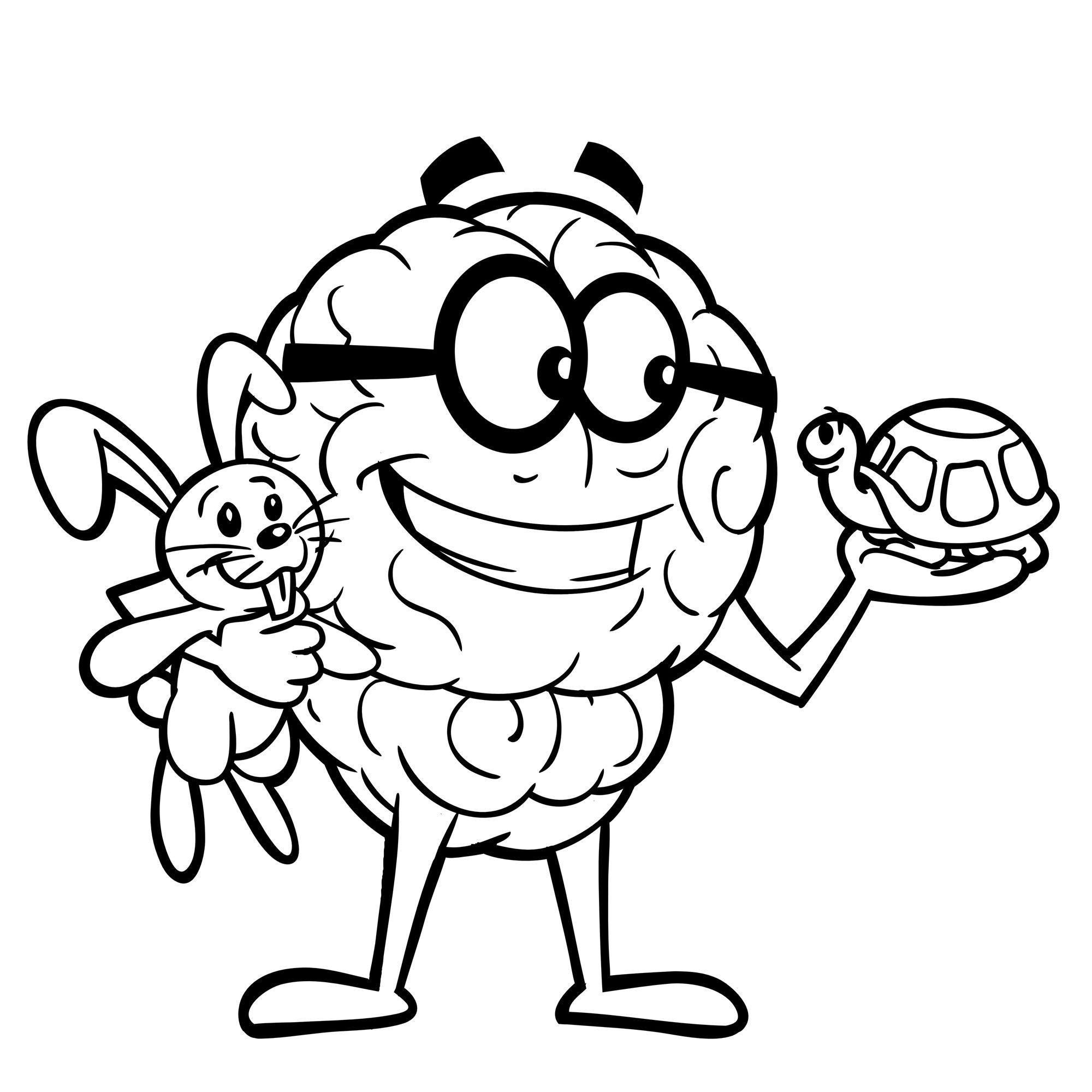 Concentrate on Module 9 during this entire week. Do your Daily Goals; reread the sections; relisten to the videos and audiobook excerpts. It takes the average adult 4 times through to really absorb the material and turn it into a new behavior. If you want positive results, rushing through the material, just because you can, may not provide the desired outcome.
Concentrate on Module 9 during this entire week. Do your Daily Goals; reread the sections; relisten to the videos and audiobook excerpts. It takes the average adult 4 times through to really absorb the material and turn it into a new behavior. If you want positive results, rushing through the material, just because you can, may not provide the desired outcome.
| Laughter is the most reliable gauge of human nature. —Dostoevski |
Practice, practice, and practice the new strategies you are learning. Get plenty of sleep so your brain has time to "consolidate"—transfer—what you are learning from short-term to long-term memory. Drink plenty of water to keep your brain hydrated and able to generate the mental energy you need. Are you a happy person who laughs a lot? Now is the time for smiles and laughter, for you and for everyone with whom you come in contact.  Your health depends upon it! Sustained mirthful laughter matters! In the words of Mary Pettibone Poole, those who laugh, last.
Your health depends upon it! Sustained mirthful laughter matters! In the words of Mary Pettibone Poole, those who laugh, last.
You don't stop laughing because you grow old. You grow old because you stop laughing.
—Michael Pritchard
 See you next week for LLM Online Module 10
See you next week for LLM Online Module 10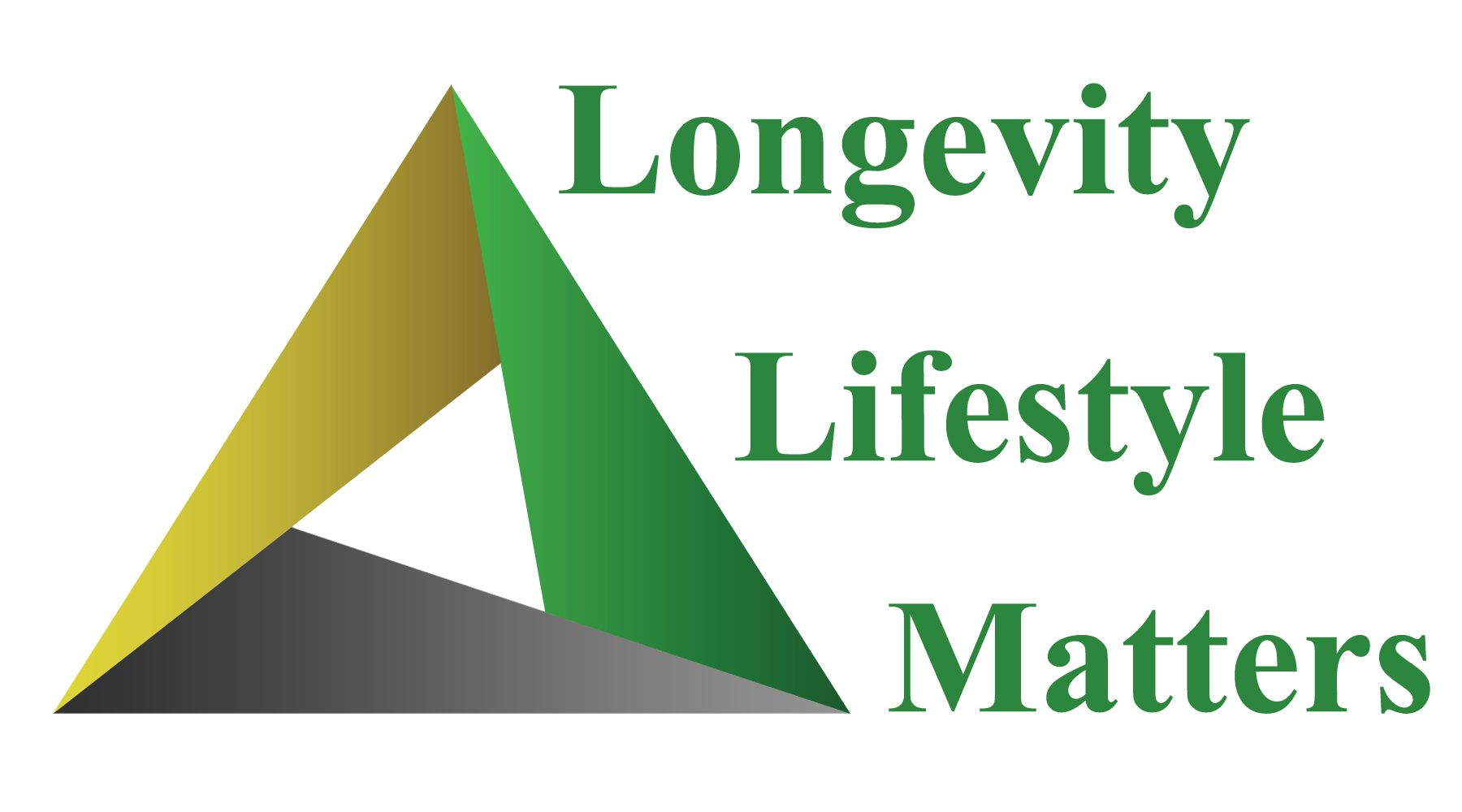
Topic:
Support Network—No brain is an island
Lesson List
- Module 2 – Emotional Intelligence (EQ)
- Module 2 – To Begin
- Module 2 – Slow & Steady Wins
- Module 1 – Mindset and Self-talk
- Module 1 – To Begin
- Module 1 – Slow & Steady Wins
- Module 1 – Mindset (educational video)
- Module 1 – Birds & Brains (video)
- Module 1 – Just the Facts - Chapter 1 (audio)
- Module 1 – Just the Facts - Chapter 2 (audio)
- Module 2 – EQ (Emotional Intelligence) (video)
- Module 2 – Just the Facts - Chapter 3 (audio)
- Module 4 – Sleep
- Module 4 – To Begin
- Module 4 – Slow & Steady Wins
- Module 3 – Mental & Physical Exercise
- Module 3 – To Begin
- Module 3 – Slow & Steady Wins
- Module 5 – Water
- Module 5 – To Begin
- Module 5 – Slow & Steady Wins
- Module 6 – Safety
- Module 6 – To Begin
- Module 6 – Slow & Steady Wins
- Module 7 – Sunlight
- Module 7 – To Begin
- Module 7 – Slow & Steady Wins
- Module 8 – Nutrition
- Module 8 – To Begin
- Module 8 – Slow & Steady Wins
- Module 10 – Support Network
- Module 10 – To Begin
- Module 11 – Stressors
- Module 10 – Slow & Steady Wins
- Module 9 – Laughter
- Module 9 – To Begin
- Module 11 – To Begin
- Module 9 – Slow & Steady Wins
- Module 11 – Slow & Steady Wins
- Module 12 – Life Satisfaction
- Module 12 – To Begin
- Module 12 – Slow & Steady Wins
- Module 2 — Birds & Brains, No. 2 - EQ (video)
- Module 3 – Exercise (educational video)
- Module 3 – Just the Facts - Chapter 4 (audio)
- Module 3 – Just the Facts - Chapter 5 (audio)
- Module 3 – Birds & Brains, No. 3 - Exercise (video)
- Module 4—Just the Facts - Ch. 6 (audio)
- Module 4—Birds & Brains #4 (video)
- Module 4—Sleep (educational video)
- Module 5—Water (educational video)
- Module 5 – Just the Facts - Chapter 7 (audio)
- Module 5 — Birds & Brains #5 (video)
- Module 6 – Safety (educational video)
- Module 6 – Just the Facts - Chapter 8 (audio)
- Module 7 – Birds & Brains #7 (video)
- Module 8 – Just the Facts - Chapter 10 (audio)
- Module 8 – Nutrition (educational video)
- Module 8 – Birds & Brains #8 (video)
- Module 7 – Just the Facts - Chapter 9 (audio)
- Module 6 — Birds & Brains #6 (video)
- Module 7 – Sunlight (educational video)
- Module 9 – Laughter (educational video)
- Module 9 – Just the Facts - Chapter 11 (audio)
- Module 9 – Birds & Brains #9 (video)
- Module 10 – Support Systems (educational video)
- Module 10 – Just the Facts - Chapter 12 (audio)
- Module 10 – Birds & Brains, No. 10 - Support Systems (video)
- Module 11 – Stressors (educational video)
- Module 11 – Just the Facts - Chapter 13 (audio)
- Module 11 – Birds & Brains No. 11 - Stressors (video)
- More Information
- Module 12 – Life Satisfaction (educational video)
- Module 12 – Birds & Brains, No. 12 - Life Satisfaction (video)
- Module 12 – Just the Facts - Chapter 14 (audio)
Teachers Info

Arlene R. Taylor, PhD
- Specialist:
- Website: https://www.arlenetaylor.org/
-
Arlene R. Taylor PhD, a leading speaker on brain function, is sometimes referred to as the brain guru. She specializes in simplifying this complex topic, with the goal of helping individuals understand more about the brain in general and their own in particular. She delights in helping others learn how to thrive by...

